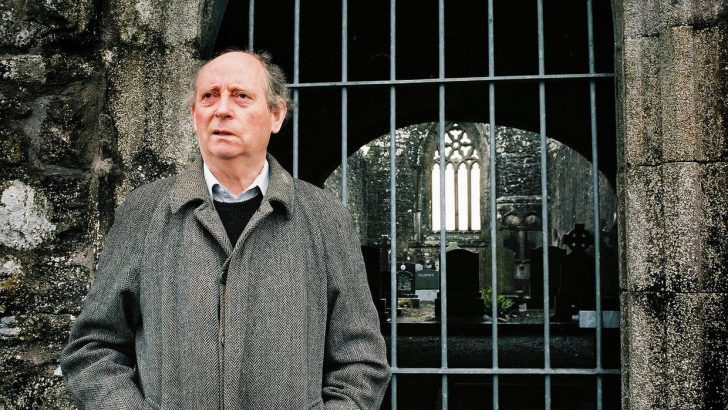The Letters of John McGahern edited by Frank Shovlin (Faber & Faber, €29.99 / £27.92)
Derek Hand
John McGahern made very clear his unease with the act of letter writing, declaring to his friend the artist Paddy Swift, “I don’t like writing letters… it is so easy to be anything except honest here: surely the act of the saint or the madman”.
Truth is McGahern’s objective, and he’s not sure of the various poses that letter writing demands of the self. In a letter to Mary Keelan he says, “I am no good at letters… They’re neither life nor anything”. This comment speaks to the greatness of his art: the object of his literary attention is the everyday rhythms and rituals of life as it is lived. The struggle for his writing is to both discover that truth and give it articulation.
As he says: “The real drama of life doesn’t go on in war… but how our consciences weigh the triumphs and disasters of each day.” And, despite his wariness of the form, these letters do offer us precisely that: invaluable glimpses of a life well-lived in the midst of the everyday. Shifts in tone mark developments in growth, with a palpable note of growing confidence to be discovered after the publication of his first novel The Barracks.
It is as if, in finding himself in the act of becoming a writer, an anxiousness is removed. A phrase from Joseph Conrad’s Heart of Darkness is made use of on several occasions: “We live as we dream: alone.” That recognition of loneliness bubbles beneath the story’s surface unfolding here, momentarily overcome with his first marriage to Annikki Laaksi.
Again and again, we are offered intimations of feeling. As their marriage breaks down, amid the details of fraught encounters and arguments, a single phrase: ‘they’re cold, the days’ suggests something more than mere facts might express.
The quickening of the narrative, the breathlessness and yearning that comes with the marvelousness of finding someone to share this world with when he meets his future wife Madeline Green is telling. Their ease with each other as their relationship grows and develops is palpable: love is a process, not an end, something to be worked at.
Detail
There is much detail about the mundane business of writing here: the relationship with publishers, royalties, books, proofs, and the perpetual problem of titles – which McGahern says are easier for short stories but almost impossible for novels. His relationship with his peers is of interest, with Brian Friel, Seamus Heaney and Colm Tóibín among his correspondents. The figure of Richard Murphy flits in and out of the narrative, always on the move, some literary scheme or other, underway. Some will note his criticisms of their work, but what is remarkable and refreshing is that these are shared with the authors themselves. Honesty, even brutal honesty, is essential for McGahern.
The success of Amongst Women is a surprise, and McGahern moves into the role of the elder literary figure with some bemusement but ultimately relative ease. The final letter to the poet Paul Durcan touches upon some disagreement but says, “These are small things and are best forgotten about”, ending with “What more can we say?” These final words bring to a close an extraordinary life.
Texture
The texture of that existence is amply on display here, mention of a day at the races, dinners and drinks and meeting up, affairs and friendships, family, pointing to the very stuff of life, running to some 850 pages. But, of course, there are many gaps in the narrative. Events are anticipated, and then only their afterglow trouble the subsequent flow; their echo responded to and assimilated. A future biography will perhaps fill in those silent spaces.
Derek Hand is Dean of the Faculty of Humanities and Social Sciences, DCU.



